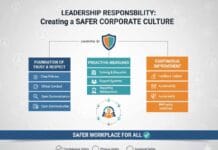
The importance of leadership skills in career success cannot be underscored. In today’s competitive and dynamic professional landscape, possessing effective leadership skills is instrumental in collaboration, teamwork, and problem-solving—all of which are essential for fostering a positive work environment, building strong relationships, and achieving collective goals. Simply put, those who can inspire, guide, and motivate others, communicate effectively, and navigate complex situations with resilience are more likely to stand out and thrive in their careers. In this guide, let us explore various avenues for leaders to enhance their skills, foster self-awareness, and, ultimately, unlock their full potential. In doing so, career assessments play a pivotal role, with Cut-e assessments emerging as a valuable resource for individuals keen on honing their leadership capabilities. We will also tackle ways on how to achieve assessment success through the age-old method of practice.
The Importance of Personal Development for Leaders
Leadership is not merely also about having an essential position in the company; it is a continuous process of growth and refinement to achieve your best self. Personal development for leaders goes beyond acquiring technical skills; it encompasses developing one’s emotional intelligence, adaptability, communication prowess, and a profound understanding of oneself. Here are vital ways future leaders can embark on their personal development journey:
1. Self-Reflection and Awareness
The foundation of personal development lies in self-reflection and self-awareness. Leaders must delve into their values, strengths, weaknesses, and aspirations. This introspective process enables you to understand your leadership style, make informed decisions, and cultivate authenticity in your leadership approach.
2. Continuous Learning
The world is dynamic, and leaders must stay abreast of industry trends, technological advancements, and leadership philosophies. Engaging in continuous learning through workshops, conferences, and educational programs ensures leaders remain adaptable and equipped to navigate the intricacies of the professional landscape.
3. Effective Communication
Developing effective communication skills like active listening, clear articulation, and the ability to inspire and motivate, is essential for creating a positive and collaborative work environment.
4. Emotional Intelligence
Leadership isn’t just about breezing through tasks and deadlines; it’s about understanding and connecting with people in the process. Emotional intelligence involves recognizing, understanding, and managing one’s own emotions while empathizing with the emotions of others. Those with high emotional intelligence can build strong relationships, navigate conflicts easily, and inspire their teams.
5. Goal Setting and Planning
Personal development requires clear goals and a well-thought-out plan. Leaders should set both short-term and long-term objectives, outlining the steps needed to achieve them. This strategic approach helps leaders stay focused, motivated, and accountable for their growth.
The Role of Assessments in Personal Development
Assessments serve as valuable tools in personal development by providing objective insights into an individual’s strengths, weaknesses, and areas for improvement. These assessments go beyond subjective self-perceptions. Instead, it offers a data-driven foundation for leaders to build upon. One notable tool in this realm is the Cut-e assessment, which stands out for its comprehensive approach to evaluating leadership potential.
A Primer on Cut-e Assessments
Cut-e assessments, developed by Aon, are a series of psychometric assessments designed to evaluate cognitive abilities, personality traits, and situational judgment. These assessments provide a nuanced understanding of an individual’s capabilities, preferences, and potential challenges in various professional contexts.
Cognitive Abilities Assessments
Cut-e cognitive assessments measure an individual’s cognitive aptitude, problem-solving skills, and critical thinking abilities. Leaders benefit from these insights as they navigate complex decision-making scenarios and strategize for the future.
Personality Questionnaires
Understanding one’s personality is integral to effective leadership. Cut-e’s personality questionnaires delve into factors such as leadership style, communication preferences, and interpersonal dynamics, offering leaders a deeper understanding of their natural tendencies.
Situational Judgment Tests (SJT)
Cut-e’s SJTs simulate real-world scenarios, presenting leaders with challenges they might encounter in their roles. Leaders’ responses provide a glimpse into their decision-making processes, problem-solving strategies, and interpersonal skills.
Personal Development Benefits of Cut-e Assessments
- Objective Insights
Cut-e assessments provide leaders with objective data, offering a clear picture of their strengths and areas for development. This objectivity enhances self-awareness, a cornerstone of effective leadership.
- Tailored Development Plans
Armed with insights from Cut-e assessments, leaders can craft personalized development plans. These plans can target specific skills or traits identified through the assessments, fostering targeted and efficient growth.
- Leadership Competency Enhancement
Cut-e assessments assess a range of leadership competencies, from cognitive abilities to interpersonal skills. The data obtained enables leaders to focus on honing competencies critical to their success.
- Succession Planning
Organizations can use Cut-e assessments not only for individual leaders but also for succession planning. Identifying leadership potential within the organization ensures a pipeline of capable leaders ready to step into critical roles.
A Data-Driven Path to Leadership Excellence
Personal development for future leaders is a dynamic and multifaceted journey, and assessments like Cut-e play a crucial role in providing data-driven insights. By understanding cognitive abilities, personality traits, and situational judgment, leaders can tailor their development plans, fostering growth in areas critical to effective leadership.
Empowering future leaders involves embracing self-awareness, continuous learning, and strategic planning. Cut-e assessments serve as a valuable companion on this journey, offering leaders a compass to navigate the complexities of leadership with clarity, purpose, and the confidence that comes from a deep understanding of their capabilities.





